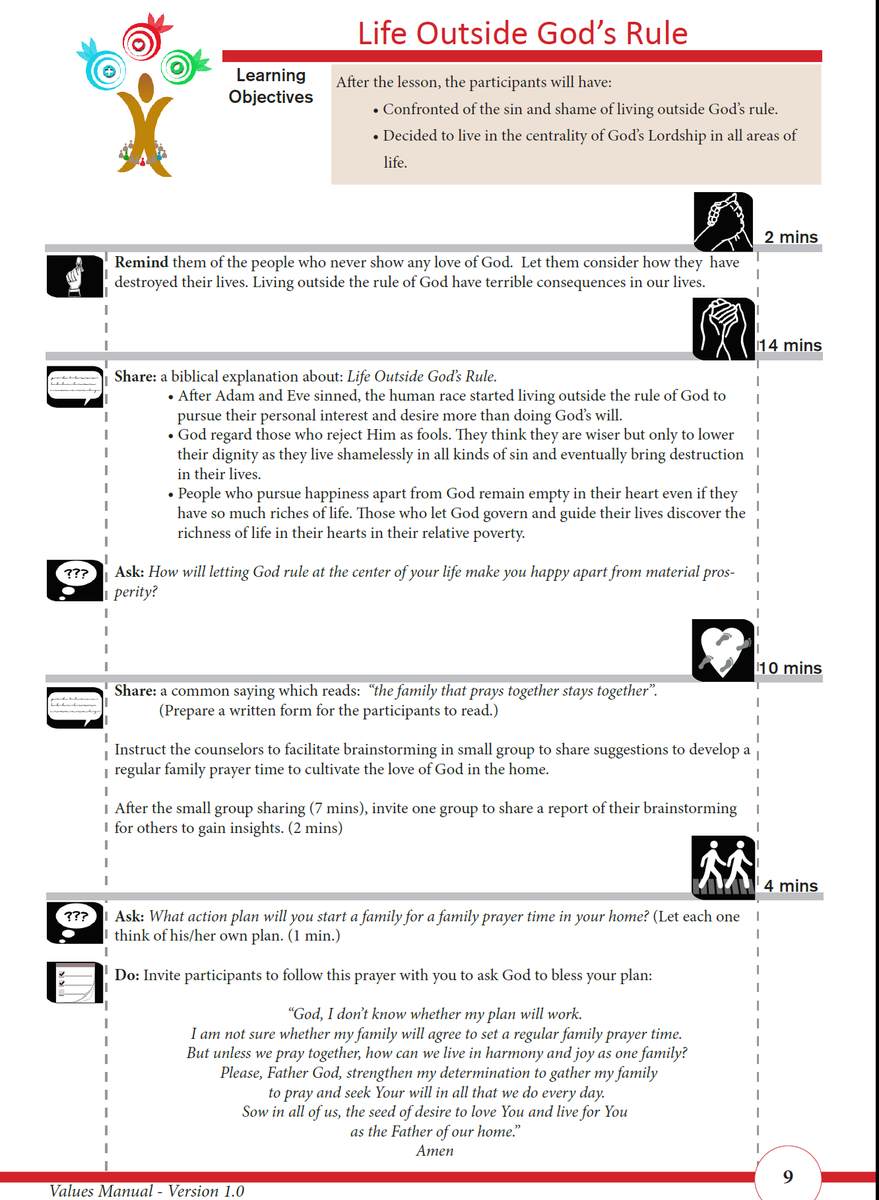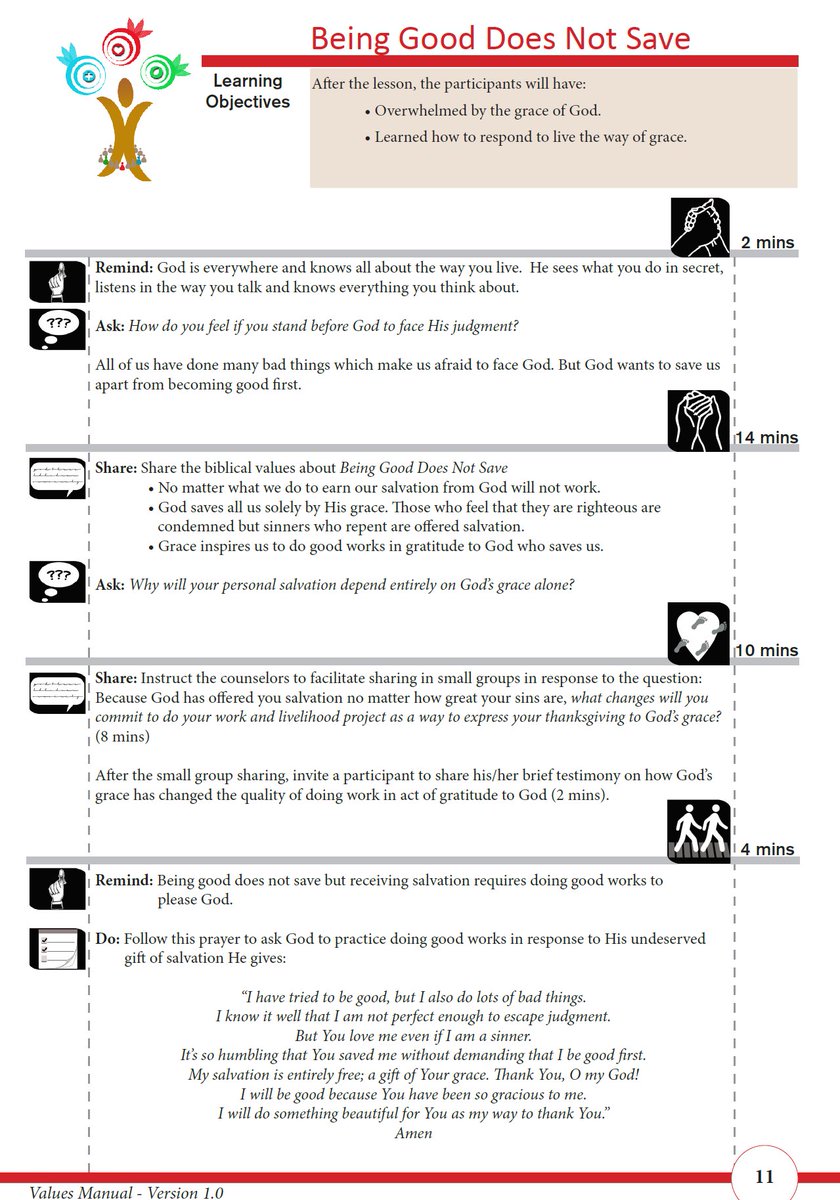It seems that the rationale that this antipoverty intervention conducted among the "ultrapoor" with a proselytizing religious organization in the Philippines is OK because: i) it was invitation-based; ii) the organization is intervening anyway. Maybe, but: https://twitter.com/jhaushofer/status/1272901232785580032
Firstly, there clearly should be an ethics discussion in the paper and steps to minimize harm, we must emphasize this in soc science -- does it affect family members? Are "ultrapoor" participants meaningfully exercising consent? Is the religious nature of the program made clear?
Second, I'm surprised by the reaction of some that this intervention is obviously uncontroversial. Many are Americans who are accustomed to the hyper-religious environment of the US. Religion can take a psychological toll. See ICM training manual here (note sin, shame, etc.)
Third, to the ReAD tHe PaPeR crowd, perhaps the onus should be on authors to foreground the ethics of working with a proselytizing org. Thought experiment: if researchers did RCT of a 'success through scientology" in poorest US neighborhoods, you would want accountability too.
Anyway, the paper is clearly interesting and impressive, and makes an interesting test of Weber's hypothesis. But papers like this must have ethics sections and discussions (with others, not just partner NGO and other RCT-inclined economists) and incorporate these into design.
Finally, academics play a legitimizing role in organization efforts. See the prominent advertising of this piece of research in ICM's webpage: https://www.caremin.com/our-research . Even if organization intervening anyway, researchers play a legitimating role and must foreground ethics.

 Read on Twitter
Read on Twitter



